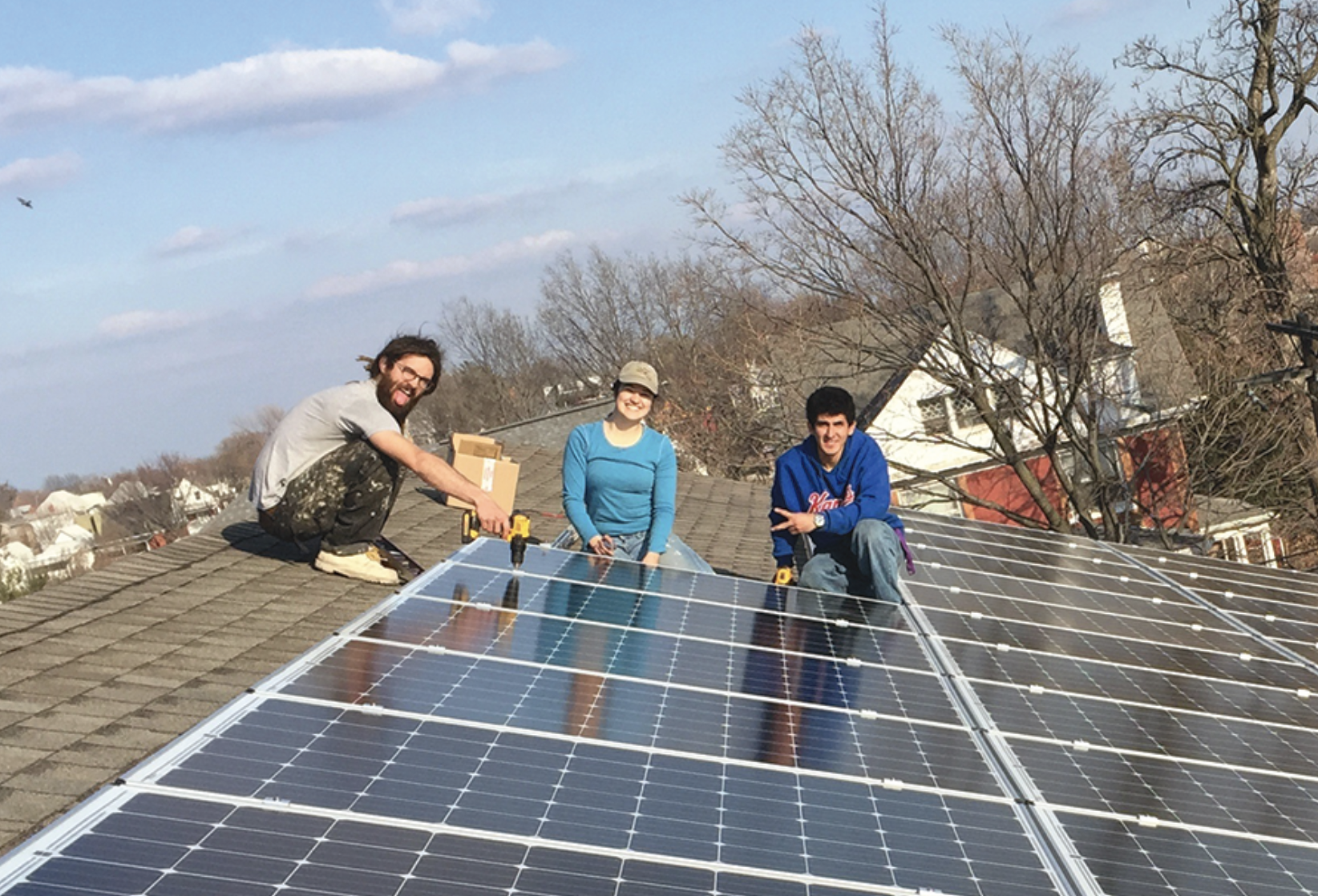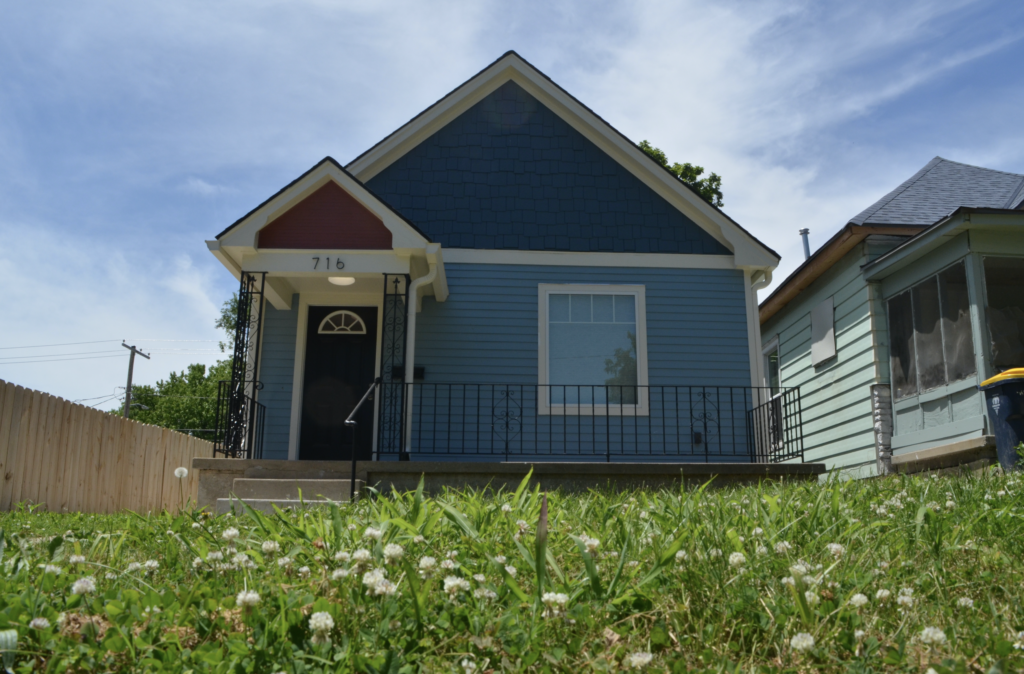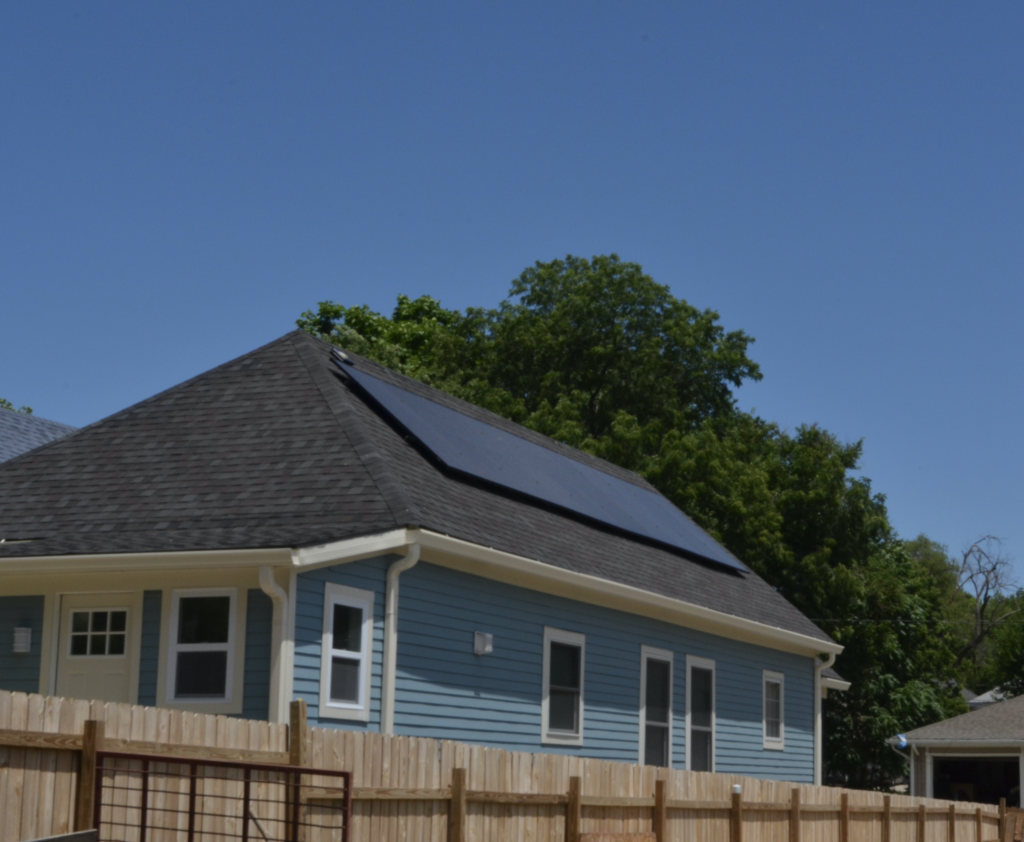
Julia Williams
Managing Editor
Among Pendleton Heights residences, beyond the trees on Garfield Avenue, sits one organization working to create environmental justice.
Jerusalem Farm — a non-profit, catholic institution — was founded in 2012 by Northeast resident Jordan Schiele and his wife Jessie, with the intention of repairing community homes.
Operating on four catholic cornerstones — prayer, community, service and simplicity — it’s a comradery, dedicated to providing support and home improvement to low-income individuals, across six Northeast neighborhoods. These include Independence Plaza, Indian Mound, Scarritt Renaissance, Pendleton Heights, Lykins and Sheffield.
However, this residential assistance now goes beyond traditional reconstruction with its solar program. Established October 2022 by program leader, and Jerusalem Farm Sustainability Coordinator, Adam Rossi — installs 10 module, 4 kilowatt-hour solar panels to south-facing roofs within the Northeast.
“We had to learn how to go from zero to solar,” Rossi said in an interview.
Rossi said he joined Jerusalem Farm as a garden manager, however, his passion for low-income solar power called him to create an affordable, low-income solar program.
Powered by sunlight, solar energy is created when sun rays strike solar cells — leading to electron-generated electrical currents.
With sun-produced energy, these solar panels work to deplete negative pollutant emissions, which remains paramount for Rossi.
“I care a lot about the climate emergency and preventing the utilization of fossil fuels,” Rossi said.
Additionally, it creates a cheaper electricity alternative, as it allows homeowners to produce their own electricity — rather than purchasing it through the grid.
The program is conducted over a “no-interest loan.” This involves organization volunteers purchasing materials and providing free labor installments to residents. Homeowners then pay the organization back over time for said materials.
Jerusalem Farm additionally installs solar on residences acquired from the city’s Land Bank Program, referred to as “Land Trust homes.” This caps a residence’s purchasing or rental cost, which allows a dwelling to remain affordable.
A roof — which is considered an ideal solar candidate — must face south, receive a surplus of sun exposure and remain free of obstructions, according to Rossi.
The program has installed two panels so far — one in Lykins and one in Indian Mound — which cost an estimated $8,000 to $11,000 per installation, according to Rossi.
While the program has completed these Installations, the panels are not yet running, as Evergy must approve each solar-powered residence.
In the program’s first months, Rossi also developed a license plate-style fundraiser. The proposal includes using proceeds from Jerusalem Farm designed license plates to put toward solar panel installations on Northeast homes. For initiative approval, the State of Missouri requires the organization to collect 200 signatures and gain three state representative sponsors, before review.
Last spring, a contest was held for community members to submit license plate designs — April 2023, local artist and Senior Hallmark Designer, Julia Morris’s design was selected.
If the program obtains 200 signatures by June 30, the State of Missouri legislature will consider developing solar energy-inspired license plates for the 2025 legislative session. Plates will sell for $40 — allowing $25 per sale to go toward Jerusalem Farm’s solar program, according to Rossi.
Rossi has collected 92 signatures over around 19 months. He said he hopes to complete the state signature requirement by 2025.
For those interested in contributing a signature, visit Jerusalem Farm’s website to access the form: https://www.jerusalemfarm.org/s/license-plates?language=en_US


















